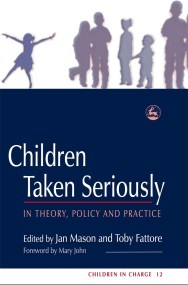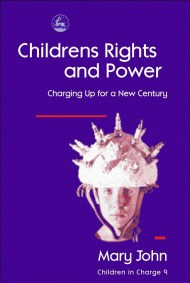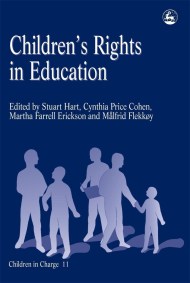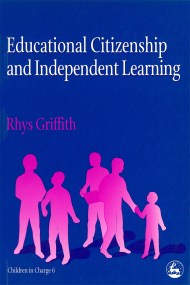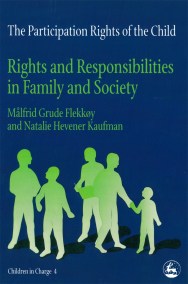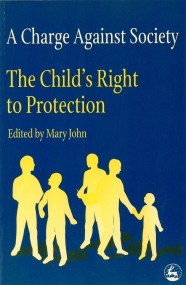We have updated our Privacy Policy Please take a moment to review it. By continuing to use this site, you agree to the terms of our updated Privacy Policy.
Children in Our Charge
On sale
1st April 1996
Price: £25
Genre
Society & Social Sciences / Social Services & Welfare, Criminology / Social Welfare & Social Services / Welfare & Benefit Systems / Child Welfare
Selected:
Paperback / ISBN-13: 9781853023699
This second book in this new series concentrates on the theme of providing for children in child-centred ways. It includes the philosophical background to thinking about children’s rights vis-a-vis society’s responsibilities and examines the effectiveness and dilemmas associated with the concept of the ‘Best Interest of the Child’. Article three of the Convention of the Right of the Child states that all actions concerning children, whether undertaken by public or private social welfare organisations, courts of law, administrative authorities or legislative bodies, must hold the best interests of the child as the primary consideration. Rarely, however, does a child have a say in what those interests are.
This volume redresses the balance and looks at provision and redistribution of resources as far as possible from the child’s perspective. It looks at children in very disadvantaged circumstances such as in Romania but also at some of the issues arising from developments in the `developed’ world. In addition to established areas this volume looks at two new issues as they concern the rights of the young: the possibilities of the information super highway and the rights of children born as a result of reproductive technologies.
This volume redresses the balance and looks at provision and redistribution of resources as far as possible from the child’s perspective. It looks at children in very disadvantaged circumstances such as in Romania but also at some of the issues arising from developments in the `developed’ world. In addition to established areas this volume looks at two new issues as they concern the rights of the young: the possibilities of the information super highway and the rights of children born as a result of reproductive technologies.
Newsletter Signup
By clicking ‘Sign Up,’ I acknowledge that I have read and agree to Hachette Book Group’s Privacy Policy and Terms of Use
Reviews
Reviewed with Children in Charge 1
'Mary John's commitment to involving young people in the conference proceedings is to be welcomed and applauded. A goldmine of empirical studies of policy and practice targeted at the improvement of children's lives by increasing their rights entitlements... An extensive range of issues embracing education, health, divorce, play, new technology, physical and sexual abuse and even reproductive technology are discussed thoughtfully and analysed intelligently for their implications for children's rights. John has also avoided the trap of a narrow eurocentrism... The development of social policy in Uruguay, the children's parliament in Slovenia, the implementation of the UN Convention in Kenya and children's right to play in Peru offer more global arenas for the discussion of rights.
These are two remarkable volumes which deserve wide readership. The experience of childhood is dealt with honestly and with deep integrity and respect and dignity. The second volume 'The Child's Right to Resources' provides a conceptual framework for the whole area of children's welfare and rights... I cannot commend these two volumes highly enough for the quality of insights, the willingness to provoke, the challenge to us to think of children internationally and above all the clear commitment to allowing the authentic voices of children to be heard.




